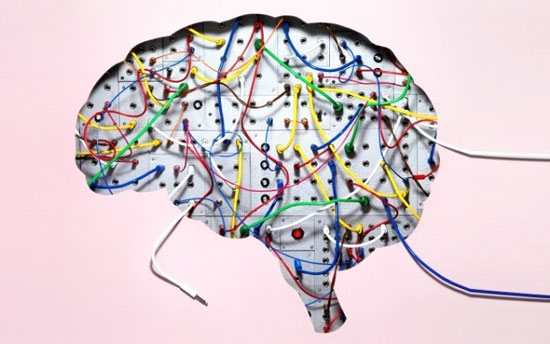Better mind, better life: rewire your brain for new healthy habits

It is very important adopting a brain-healthy lifestyle. Maybe you’re trying to implement the lifestyle changes you know you should, but are struggling. If you’re like most people, you’ve tried to change, but you find it really, really hard (as in “impossible”). You’ve made the resolutions and set the goals. When you’ve failed, you’ve tried even harder, but making change stick has still eluded you.
Let’s take a look at why the usual ways of making lifestyle changes often fail.
Then there are some easy but counterintuitive tips that will help you create new, healthy habits by rewiring your brain.
Change the Usual Way Is Hard
Most people rely exclusively on motivation and willpower to make a change. There are some surprising reasons this doesn’t work too well.
Motivation
When you decide to start a new diet, exercise program, or any self-improvement venture, you are usually psyched! You just know this time you’re going to stick with it. You’re excited about the new gym you joined or a new diet book you’ve read, and your motivation is high. Initially you are motivated by the pleasure of what you want (getting into your skinny jeans, wearing a bathing suit this summer) and the pain of what you don’t want (hating the way you look, having a heart attack).
But motivation naturally diminishes with time.
Willpower
When motivation starts to wane, you fall back on willpower. But no one has an endless supply of willpower. It is a resource that gets used up, usually quickly. When your day is filled with things you really don’t want to do, by the end of the day you no longer have any willpower reserve left. So you spend the evening plopped down in front of the TV munching on unhealthy snacks, vowing to do better tomorrow.
It’s not your fault. You simply have no willpower left to make the healthier, harder choices. This is one reason that only 8% of those who make New Year’s resolutions achieve their goals.
If motivation and willpower let you down, don’t despair! There is another answer that relies on using the power of your subconscious brain.
Making Change Easier – Rewire Your Brain
According to neuroscientist Dr. Bruce Lipton, author of The Biology of Belief, 95% of your life is dictated by the subconscious mind. Your subconscious runs a large portion of your life on autopilot. This lets you do many tasks – even fairly complex ones like driving a car – without really thinking about it. When you do something often enough, it becomes a habit.
Habits are activities you do effortlessly with minimal thought on your part. You can appreciate the power of a habit when you try to stop a bad one. It’s tough!
This is how to rewire your brain to stop struggling with change, to turn your desires into habits. For example this one is good for starting a walking program, but these concepts can be used for creating any new healthy habit.
Take Baby Steps
Setting big goals is exciting! Telling your friends (and yourself) that you are going to start walking five miles a day sounds impressive, but you are probably setting yourself up for failure. But starting with small, boring goals – baby steps really – will greatly increase your chance for success.
There will be many days you won’t walk at all if five miles is your goal. But if you make walking around the block your goal, you can certainly accomplish that!
You will feel good that you’ve honored your commitment to yourself. But even more important, you’ve harnessed your brain’s neuroplasticity – its ability to continually change throughout life – to create a new neural pathway that turns your daily walk into a habit.
Your subconscious likes to be in control and doesn’t like change, but setting small goals works with the way your mind works.
A huge change often sets up subconscious resistance, whereas a small change is more readily accepted.
Use Triggers
Ask anyone who smokes and they can tell you about triggers. Most smokers have triggers to smoke after a meal or with a cup of coffee. You can use triggers to your advantage.
When you regularly take a walk after another event (such as eating dinner), your mind creates an association so you’ll automatically be more inclined to take a walk after dinner.
You can help yourself with visual triggers too. Leave your walking shoes by the front door or keep your fitness tracker by your keys to create triggers you can’t miss.
Be Prepared
If you are going to start a new habit, you need to be prepared. A successful walking habit means more than putting one foot in front of the other. Initially, you have a few decisions to make. Where are you going to walk? What time do you want to leave? Are you going to walk alone, with a friend, or bring your dog? Should you bring water?
Next, get the right equipment to ensure your success. Get a good pair of walking shoes and a water bottle that’s comfortable to carry. You may want to get a fitness tracker. People who use one walk 27% more than those who don’t.
Make It Convenient
Put everything you need to take a walk in one convenient place so you can grab your stuff and go. If your shoes are in the linen closet, your socks are in the bedroom, your house key is in your desk drawer, and your water bottle is in the car, you’ll give up before you get out the door!
Make It Fun
Make your walk something you look forward to. If you like companionship, find a walking partner. If you enjoy music, podcasts, or audiobooks, listen while you walk.
It’s all about decreasing resistance and increasing pleasure.
yogaesoteric
March 12, 2019
